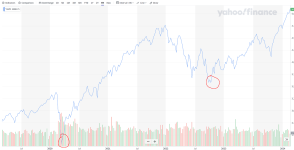So when I suggested bonds at 5% last night, I didn't think that easy access savings or ISA's had rates as high as 5%, I thought they were a lot lower than this as historically those types of accounts have been crap, and locking your money away has been better.
Id also seen some YouTube videos from the Pensioncraft guy who has been talking a lot about bonds lately and how the short term rate is a lot higher than the long term rates, which is historically the wrong way around.
So given that a regular saver earns only half the interest that the headline rate implies across a full year, I suggested instead buying fixed bonds at 5% instead.
In some scenarios in would work out better, just not in the OPs scenario and not with easy access rates or ISAs so close in rate.
Like I said in the other thread, consider if you had a 7% reg saver youre already part way through the promotional term of, but the next best easy access was 3%. Or you could buy a 5% bond now (you don't know what bond rates would be available in a month or two time, those rates might be gone by then), then you could make more interest off the bond.
Or, if you had say £12k upfront, you could buy a 5% bond off the bat but you can only drip feed a regular saver ending up with half the headline interest. If the account you're drip feeding from has a poor rate you might be better off with the bond then as well.
I was surprised to see easy access savings and ISAs at around 5%, didn't think they'd be anywhere near that level. So in that case yeah I don't know why bonds would be worth it nor why the Pensioncraft guy seemed to be so keen on them.
Also I didn't mention this last night but those reg savers are normally tied into having a new current account or something from what I've seen, so those can be exhausted quite quickly.



